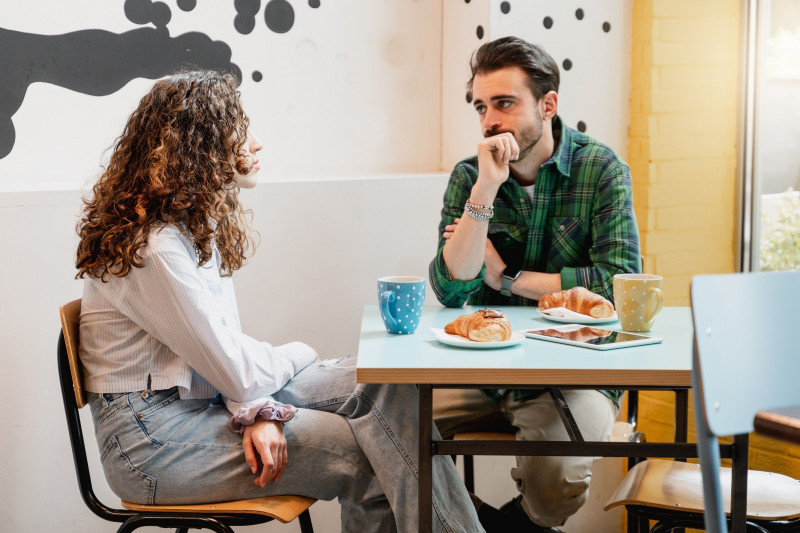THE first impressions we make when talking to new people can be a source of anxiety for many. In fact, it can be a real ordeal, and worrying that you've been a bore, or not likeable enough, is relatively common after first encounters. Researchers refer to this situation as the "liking gap," a phenomenon that distorts our perception of what others might think of us.
"What did that person think of me?" "Did I talk too much?" These are often questions that cross our minds after meeting new people. As we know, conversations can be anxiety-provoking and even intimidating, leading us to fear what people might think of us. As a result, we might think we've been unpleasant, when we've actually been far from it.
This situation is known as the "liking gap." As the name suggests, this refers to the gap between the image you think you've given off and the image your counterpart has actually perceived. This mechanism, which is more common than you might think, distorts our perception of how others might perceive us. In other words, people might actually like you more than you think.
Recently trending on the social network TikTok, the notion of the "liking gap" is the subject of several videos, like those posted by the user dellara. The young woman explains that we are, in fact, our own worst critics. In the comments, the "liking gap" seems to be familiar to most internet users. One comments: "I'm constantly worried that my friends will hate me, so that's good to know." Or: "I'm so surprised when my friends like me." And according to the TikToker, this is a social phenomenon grounded in scientific research.
Indeed, a 2018 study published in the journal, Psychological Science, purportedly demonstrates that in all our social interactions, we have an unfortunate tendency to underestimate how much others appreciate us. The researchers based their observations on a number of scenarios involving university students.
For example, strangers getting to know each other in a laboratory, first-year students getting to know their roommates, or strangers meeting in a workshop. In each group, participants were asked how much they liked the person they were getting to know, and how much they thought the other person liked them. The study raised several interesting points.
Participants very often had remarkably negative "internal monologues" where they made their own assumptions about what others perceived of them. They also doubted their ability to carry on an interesting or friendly conversation, even if the person interacting with them was smiling. Ultimately, the "liking gap" exists mainly because we can't simply ask people if they liked us at the end of a conversation. This can result in a lack of self-confidence. And it's a phenomenon that appears to develop during childhood.
In 2021, separate research studied how the "liking gap" manifests in children over the age of five. The research revealed that the "liking gap" develops as a child gets older. It becomes more pronounced over the years, particularly as children become more concerned about their own reputation.
"Really young children aren’t really thinking about whether another person likes them, they don’t care about the reputation they make. But as that voice turns on that cares about reputation, the liking gap starts to appear," explains Dr Gus Cooney, a psychologist specialising in social interactions, speaking to Vice.
But, rest assured, it's a feeling that disappears over time. In the case of the 2018 study, the research suggests that the more we get to know a person, the more the "liking gap" diminishes. In fact, it's by forging bonds that we become more at ease and thus less likely to pay attention to that little voice that makes us think we're unliked by others. – ETX Daily Up, August 15, 2023





















